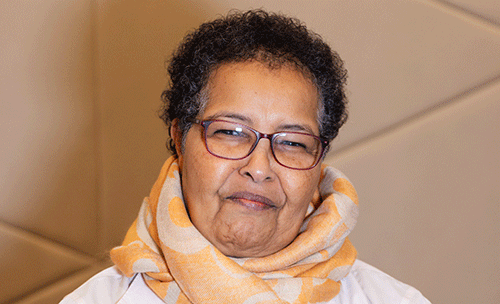Moses Magadza
Sylvia Obaga
Sally Ncube
As the 16 days of activism against gender-based violence gathers momentum shortly after the International Day for the Elimination of Violence Against Women and Girls, Faiza Mohamed, director of the Africa Office at Equality Now, has highlighted the continuing crisis of child marriage in Southern Africa.
She stated that with nearly one-third of women aged 20 to 24 in Eastern and Southern Africa married before the age of 18, the need for urgent action has never been clearer than now.
She noted that roughly 50 million women in the region were married as children, despite significant strides made in combatting child marriage.
She underscored the concerning trend in the United Nations International Children’s Emergency Fund’s latest research, which suggests that if current progress continues, child marriage in eastern and southern Africa will not be eradicated until 2240 – over 200 years later than the 2030 goal set by global leaders under the Sustainable Development Goals.
“Child marriage is not just a cultural issue. It represents a severe human rights violation, and a form of gender-based violence,” she remarked.
She added that the ongoing neglect of this issue calls for a more coordinated effort among the Southern African Development Community (SADC) member states and stakeholders.
She noted that considering the ongoing 16 Days of Activism Against Gender-Based Violence, Equality Now is pledging its commitment to bolster advocacy for the SADC Model Law on Eradicating Child Marriage and Protecting Children Already in Marriage.
This initiative aims to set a “golden standard” for the protection of children from marriage in the region.
Equality Now plans to collaborate with the SADC Parliamentary Forum and national parliaments to ensure the effective adoption, domestication and implementation of the model law.
“Strengthening stakeholder engagement and capacity-building is essential. Involving parliamentarians, policymakers, traditional leaders and civil society organisations will be crucial in the fight against child marriage,” Mohamed stressed.
She outlined several key actions that SADC member states must take to combat child marriage effectively.
First, she urged the adoption of a multisectoral approach that integrates various government ministries, such as health, education and justice, to comprehensively address the issue.
She called for the swift domestication of the SADC Model Law on Eradicating Child Marriage and Protecting Children Already in Marriage and the harmonisation of laws related to child marriage across member states.
Additionally, she highlighted the necessity of establishing a robust monitoring and evaluation framework to ensure accountability and effective implementation of the proposed laws.
“We need in-depth research and data analysis to accurately address the needs of the most vulnerable and at-risk groups of girls,” she stated.
She called for public awareness and community engagement, and stressed the importance of involving traditional and religious leaders in advocating for the eradication of child marriage, promoting dialogue and shifting societal attitudes toward the practice.
Mohamed advocated for a regional legal framework addressing children’s issues, which would facilitate accountability and standardise approaches across member states.
“It is critical to not only enact laws but ensure they are accessible to all members of society, including those in marginalised communities,” she said.
*Moses Magadza is a media and communications manager at the SADC-PF. Sylvia Obaga and Sally Ncube work as regional communications manager (Africa & MENA) and regional representative in southern Africa, respectively, at Equality Now.



